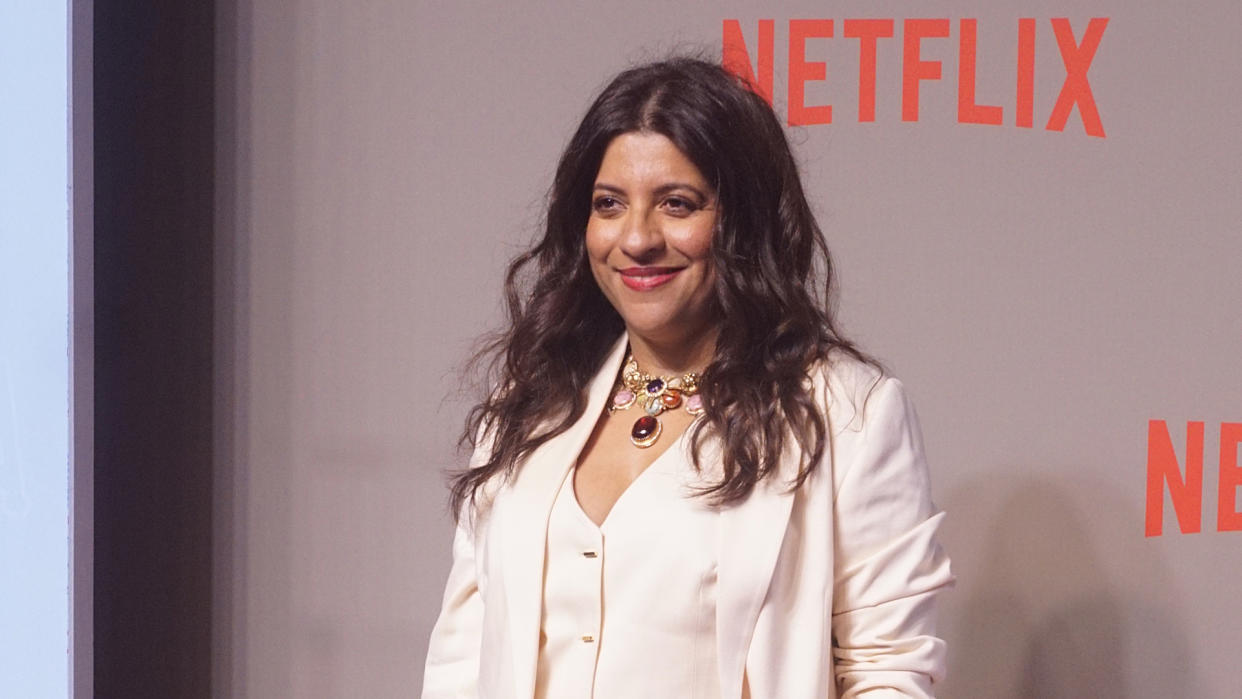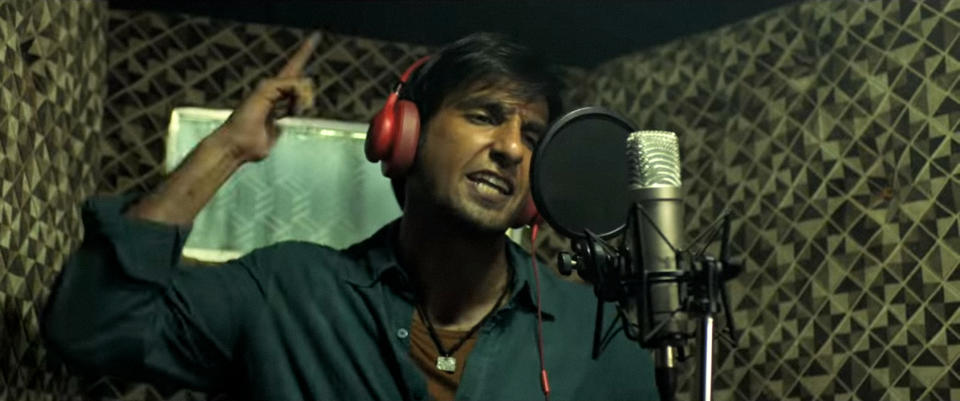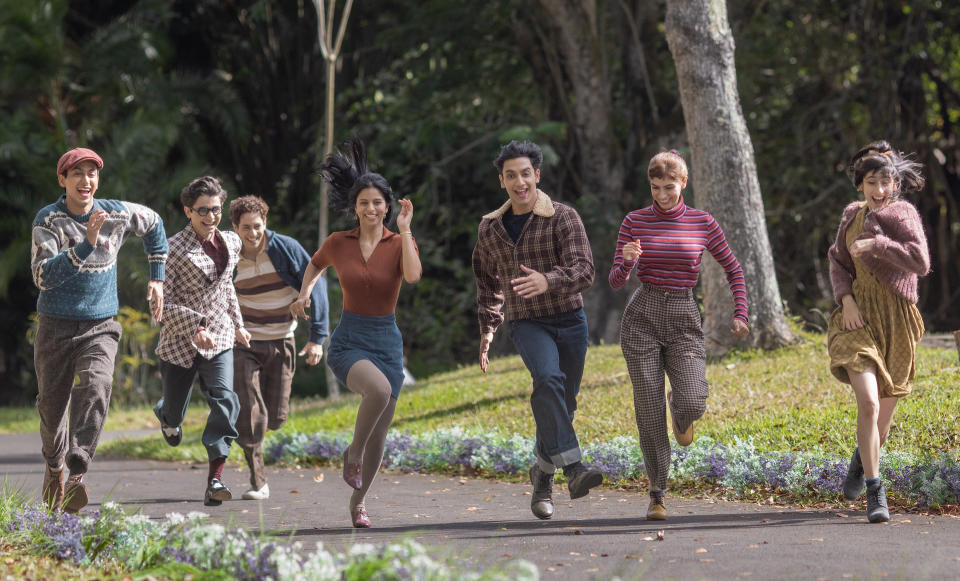From Oscars to Netflix, the Secret to Zoya Akhtar’s Unpredictable Projects: ‘It’s Got to Scare Me a Little’

Zoya Akhtar is no stranger to contradiction.
The Indian writer, producer, and director grew up in a film family, the daughter of poet and lyricist Javed Akhtar and child star-turned screenwriter Honey Irani. She grew up surrounded by the arts and was poised to enter the Hindi film industry — but when the time came to make her first feature, it took years.
More from IndieWire
“It took me a really long time to get a movie made in India, and I’m from the industry, so I had access to everybody,” Akhtar told IndieWire in New York City. “It was because I wanted to make a film like ‘Luck by Chance.’ It wasn’t the norm. People weren’t doing ensembles at that time. People weren’t gray as characters, male actors didn’t wanna play a character that was gray. They didn’t get the irony of the film, in a sense. I really believe that if I had set out to make a love story, or something more formulaic, I would have made a film much earlier.”
“Luck by Chance” is not a commercial Indian movie by most standards — and that was especially true when it premiered in 2009. It has exactly one musical number, diegetically placed into a film being shot within the movie. Most of its big-name stars play themselves in cameos. The de facto hero and heroine (Akhtar’s brother Farhan and actor Konkona Sen Sharma) do not fall in love cinematically or end up together. All of this made it harder to sell anyone and everyone on the idea, Akhtar said — not the prospect of a female director.
“I came from a home where I wasn’t treated differently from my brother,” Akhtar said. “I came from a home where it mattered what I thought and what I wanted to do. … So when I went out into the world, I never approached it with that lens. I just walked in the room and felt I belong in that room.”
She admits that she’s not the best person from whom to seek advice about gender discrimination or industry adversity. “People are going to turn around and be like ‘You’ve had it easy.’ Yes, they’re right! I have had it easy in a sense, but on some level I think because I never wore my gender on my sleeve, it never became an issue,” she said. “You’ll have the one stray incident where it’s a bit sexist, but you ride it. You deal with it. And I think once you get on the set in this business, if people think you know what you’re doing, everyone falls in line.”
After the success of “Luck by Chance” (including a Best Debut Director Filmfare Award), Akhtar had a string of hits; 2011’s “Zindagi Na Milegi Dobara” (one of IndieWire’s top summer vacation movies), the maritime family drama “Dil Dhadakne Do,” and “Gully Boy,” India’s official Oscar submission for 2019 about an aspiring rapper from Mumbai’s Dharavi slum.
But unlike many of her peers, it’s hard to pinpoint what defines a “Zoya Akhtar project.” The subjects range from childhood friendship to the entertainment industry itself to an unchecked serial killer who marries all his victims.
“I really haven’t ever fit into any box,” the filmmaker said with satisfaction. “Every time I go to make a film, that film has to excite me … and at the same time, it’s got to scare me a little bit. I didn’t know how I was going to shoot running with the bulls [in ‘Zindagi’]. I didn’t know how I was going to do ‘Gully Boy.’ I didn’t know how I was going to adapt Archie comics. There’s a slight ‘Am I going to screw this up?’ feeling, and that feeling keeps me on my toes. So I want to definitely not repeat things I’ve done because I know myself, and I’ll get bored. I want to do something that is me, because I have to feel it and enjoy it and want to put it out there — but at the same time has to be one aspect for it that is scary.”

Growing up, Akhtar was less immersed in the film industry than the arts at large. Her father was friends with musicians and poets. They attended birthday parties with actors and directors. They watched movies on the projector in their house (Akhtar remembers watching “The Godfather” when she was just 10). Just as children of stars are steered or drawn toward acting, Akhtar planned to be a writer.
“That’s something I saw at home, and Farhan and me started writing at a very nascent age,” she recalled. “We wrote poems, we wrote stories — it was the thing to do. ‘What’s your dad doing?’ ‘He’s writing.’ Or Mum: ‘I’m writing now.’ It was normal. You just wrote yourself. So I thought I’d be writer, and then I was 15 and I saw ‘Salaam Bombay,’ and I was like, ‘Man, I want to make movies.’ That was it.”
Writing remains a guiding force in Akhtar’s process as a filmmaker, including her collaboration with fellow writer and director Reema Kagti. The two met as ADs on 1998’s “Bombay Boys” and then started writing together with “Zindagi,” eventually forming the production company Tiger Baby ahead of “Gully Boy.”
“It’s good to work with somebody who also knows how to make a movie,” Akhtar said, citing Kagti’s own directing experience. “We come from very different backgrounds, we come from different worlds, and even as personalities were very different. But we share a value system and we are aligned on the things that matter, so it becomes easy to write. My dad says you can’t agree on everything — because then you don’t need the other person, you may as well do it yourself. And you can’t fight over everything because then it’s too much of a hassle. So it’s a healthy mix of both.”
As writers, Akhtar and Kagti’s process is exhaustive, from endless conversations about the story, world, and characters, to research sessions, interviews, and travel. They use an outline to get into the actual screenplay, and Akhtar writes all her dialogues in English — bringing in a designated dialogue writer later on (helpful for projects like “Gully Boy” and “Dahaad,” which rely on specific regional dialects).
As she wrote and directed features, Akhtar’s film career pulled her toward streaming; first with short films for Netflix’s “Bombay Talkies” and “Lust Stories” anthologies, and then with Prime Video’s “Made in Heaven,” released in 2019. Like a growing number of modern filmmakers, the jump from film to television was a crash course in delivering footage on a truncated timeline — but any struggle is invisible in the critically acclaimed series.
It also brought Akhtar into the streaming world, where she collaborated with Netflix for “The Archies,” the first Archie Comics feature film ever. Akhtar wasn’t meant to direct “The Archies” — only to write and produce — but scheduling conflicts and creative priorities led her to deciding, “I may as well do it myself.” It’s the rare Indian movie to focus on teenagers (including a few children of prominent Bollywood stars), but to Akhtar, it was still familiar territory.

“I like youth,” she said. “Films spoke to me in a different way when I was young. Whether it was a ‘The Breakfast Club’ or ‘Dead Poets Society,’ those films really meant something and I still hold them. … I like meeting kids that are 16, 17, that come into me how they felt [about my work]. I enjoy that and it’s important for me to do that. I think that’s been my primary audience. They say filmmakers go back to the same theme, and I just keep coming of age, no matter what film I’ve done.”
“The Archies” might be a major cultural moment, but it’s a small part of a huge year for Akhtar. In May, she and Kagti released “Dahaad” (the aforementioned serial killer drama), followed by a highly-anticipated “Made in Heaven” Season 2 in August. Before the year ends, Tiger Baby and Excel Entertainment (Farhan’s production company) will produce “Kho Gaye Hum Kahan,” written by Akhtar and helmed by debut director Arjun Varain Singh.
When asked what she wants to do next, Akhtar doesn’t hesitate to say she’s “actively looking for a gangster movie,” and notes that she hasn’t given up on a female-reboot of “Zindagi.” She has a long list of ideal collaborators and an even longer one of artists who inspire her — including the cast of “The Archies.” What did seven brand-new actors bring to the set that someone senior to them might not?
“Enthusiasm,” Akhtar said instantly. “Enthusiasm and wonder, and the excitement of man, they’re getting to do what they’ve wanted — a dream come true feeling. That you forget, and that was very contagious and something I want to hold onto. That was very, very nice, I kind of vicariously debuted again with them. That was very nice.”
All of Akhtar’s feature films, as well as “Bombay Talkies” and “Lust Stories,” are streaming on Netflix. “Made in Heaven” and “Dahaad” are streaming on Prime Video.
Best of IndieWire
Where to Watch This Week's New Movies, Including 'Poor Things' and 'The Boy and the Heron'
Quentin Tarantino's Favorite Movies: 59 Films the Director Wants You to See
Sign up for Indiewire's Newsletter. For the latest news, follow us on Facebook, Twitter, and Instagram.

